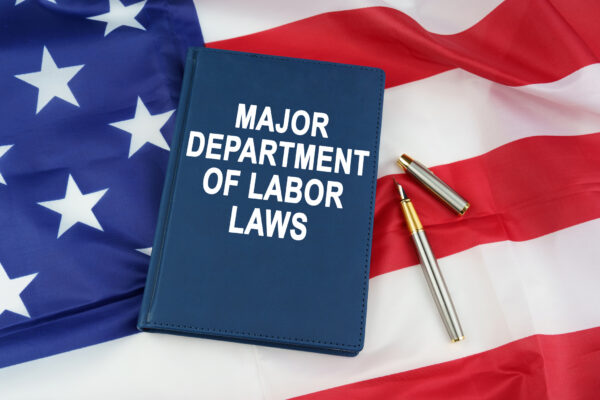
Navigating labor laws can be overwhelming for small business owners, but understanding and complying with key regulations is essential to avoid legal issues and protect your employees. Here are the essential labor laws every small business should know.
1. Fair Labor Standards Act (FLSA)
The FLSA sets standards for minimum wage, overtime pay, and child labor.
- Minimum Wage: The federal minimum wage is $7.25 per hour, but many states and cities have set higher rates.
- Overtime Pay: Non-exempt employees must be paid at least time and a half for hours worked beyond 40 in a workweek.
- Child Labor: Restrictions apply to workers under 18, including limits on hours worked and hazardous occupations.
Tip: Check your state’s minimum wage laws to ensure compliance.
2. Occupational Safety and Health Act (OSHA)
OSHA requires employers to provide a safe and healthy work environment.
- Workplace Safety: Employers must prevent workplace hazards and provide safety training.
- Reporting Requirements: Report severe injuries or deaths to OSHA within specific timeframes.
- Employee Rights: Workers can report unsafe conditions without retaliation.
Why It’s Important: Ensuring safety reduces the risk of accidents and costly penalties.
3. Family and Medical Leave Act (FMLA)
FMLA allows eligible employees to take unpaid leave for family or medical reasons.
- Eligibility: Employees who have worked for at least 12 months and 1,250 hours are eligible.
- Leave Provisions: Up to 12 weeks of unpaid leave for events like childbirth, adoption, or serious illness.
- Job Protection: Employees must be reinstated to their original position (or a similar one) after leave.
Tip: Familiarize yourself with state-level family leave laws, as they may offer more benefits.
4. Equal Employment Opportunity (EEO)
EEO laws prohibit discrimination based on race, color, religion, sex, national origin, disability, or age.
- Non-Discrimination: Employers must ensure hiring, promotion, and firing processes are free from bias.
- Reasonable Accommodations: Provide accommodations for employees with disabilities unless it causes undue hardship.
- Pay Equity: Ensure equal pay for equal work, regardless of gender or other protected factors.
Why It’s Essential: Discriminatory practices can lead to lawsuits and damage to your reputation.
5. Employee Retirement Income Security Act (ERISA)
ERISA sets standards for employer-sponsored retirement and health benefit plans.
- Plan Requirements: Employers offering benefits like 401(k)s or health insurance must follow ERISA’s fiduciary rules.
- Reporting: Employers must provide plan information to employees and file reports with the government.
Tip: Work with a benefits consultant or legal expert to ensure compliance.
6. Workers’ Compensation Laws
Workers’ compensation insurance covers employees injured on the job.
- Coverage: Provides medical benefits and wage replacement for employees injured or who become ill at work.
- Employer Responsibility: Most states require businesses to carry workers’ compensation insurance, even for small businesses.
Why It Matters: Protecting employees in the case of accidents or illnesses helps avoid lawsuits and fines.
7. National Labor Relations Act (NLRA)
The NLRA protects the rights of employees to organize and bargain collectively.
- Union Rights: Employees can join a union or choose not to, without retaliation from the employer.
- Collective Bargaining: Employees have the right to negotiate wages and working conditions collectively.
Tip: Even small businesses must comply with NLRA regulations regarding employee rights.
8. Immigration Reform and Control Act (IRCA)
IRCA mandates that employers verify the work eligibility of all employees.
- I-9 Form: Employers must complete this form for all new hires to verify their identity and work eligibility.
- E-Verify: Some employers may be required to use E-Verify, an online system that checks an employee’s eligibility.
Why It’s Critical: Failure to comply can lead to fines and potential legal issues.
9. Americans with Disabilities Act (ADA)
The ADA prohibits discrimination against employees with disabilities.
- Reasonable Accommodations: Employers must make accommodations unless it creates an undue hardship.
- Accessibility: Ensure your workplace is accessible to individuals with disabilities.
Tip: Regularly assess your workplace for accessibility and make necessary adjustments.
10. State-Specific Labor Laws
Each state may have its own labor laws regarding topics like minimum wage, paid sick leave, and family leave.
- Research State Laws: Be aware of local regulations that may provide greater benefits than federal laws.
- State Agencies: Check your state’s labor department website for updates and compliance resources.
Conclusion
Understanding and complying with labor laws is essential to avoid legal risks and maintain a positive work environment. As your business grows, it’s important to stay updated on these laws and consult with legal or HR professionals to ensure ongoing compliance.
For more information:
